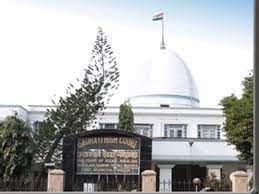Indian Penal Code, 1860 – Section 302 – Murder – Circumstantial Evidence – Last seen theory – Appeal against conviction – Appreciation of Evidence – Held: The case of the prosecution is based purely on circumstantial evidence in the form of “last seen together”, recoveries and confession. Law is well settled that for proving the guilt of the accused in a case based on purely circumstantial evidence, the chain of circumstances has to be proved by leading unimpeachable evidence; it should be complete in all aspects, unerringly pointing towards the guilt of the accused and should be inconsistent with the guilt of anyone else.
Firstly FIR was lodged four days after the deceased having gone missing from his house, and no explanation is forthcoming for this delay in lodging of the FIR. There is a gap of almost 14 days from the date on which the deceased went missing and the date on which his dead body was found. By no stretch of imagination, the incident as seen by Kokheswar Gogoi (PW-3) can be construed as a circumstance of “last seen together”. Hence, this so called incriminating circumstance of “last seen together” was not proved even by a semblance of evidence, what to say of reliable evidence.
The factum of recovery of iron rod and bicycle can otherwise also not be accepted because neither the Arrest Memos. of the accused were proved by the prosecution nor did the Investigating Officer bother to record any disclosure statement of the accused “under Section 27 of the Evidence Act” which led the alleged discoveries. It seems that the Presiding Officer of the trial Court gave a total go by to the principles of appreciation of evidence and has rendered the impugned judgment like a layman, blindly placing reliance on the evidence of the Investigating Officer and admitting even the confessions made by the accused before the police officer in gross disregard of the salutary principles laid down in the Evidence Act. The entire procedure in conducting the trial and rendering the judgment is gravely flawed, erroneous and suffers from loopholes and blunders for which the public prosecutor as well as the Presiding Officer concerned are equally responsible.
By virtue of Section 165 of the Evidence Act, it was obligatory for the trial Judge to ensure that relevant evidence is not left out from being brought on record and irrelevant evidence is not allowed to be brought on record. However, no attention was paid on these important aspects of the case. Prosecution failed – Conviction set aside (Para 5, 6, 7, 8, 11, 12)
GAUHATI HIGH COURT
2023 STPL(Web) 34 Gauhati
Jiten Gowala Vs. State Of Assam
CRL.A(J) 7 of 2017 and CRL.A(J) 8 of 2017 -Decided on 8-08-2023.
https://stpllaw.in/wp-content/uploads/2023/08/2023-STPLWeb-34-Gauhati.pdf







